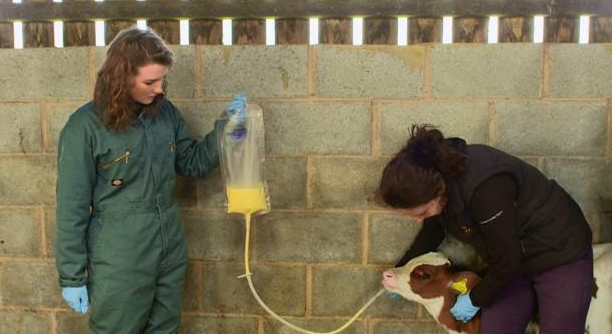
Working in partnership, the Royal Veterinary College, University of London (RVC) and DairyCo have produced a series of online films looking at aspects of dairy calf management and health.
Previous research at the RVC has shown that the average mortality rates of liveborn dairy heifers in their first month of life on GB farms ranged from 0-12%. Some farms achieve mortality rates as low as zero per cent suggesting losses can be avoided when good management practices are in place.
Further work by the College, sponsored by DairyCo, reviewed the scientific evidence to identify best practice in colostrum management and promoting health of young dairy calves. It is this work which has culminated in the development of a series of six films for farmers and their staff working together with their veterinary surgeons and advisors to help implement procedures to minimise calf mortality.
Filmed on the farm and presented in a clear and practical way to help farmers implement best practice in calf rearing, the six films and associated resources cover: colostrum management, colostrum hygiene, tube feeding colostrum, testing colostrum, monitoring growth and hygiene in the calf shed.
Dr Jenny Gibbons, R&D Manager at DairyCo said: " Dairy calves are the future of the dairy herd and deserve to have the best management. Back in 2013, as part of the DairyCo Research Partnership an industry wide workshop brought together key individuals and organisations involved in calf health, welfare and management to discuss areas for improvement. These films are the output of this workshop and incorporate the latest research and management advice to ensure farmers keep up to date on calf management best practice."
Professor Claire Wathes, Professor of Veterinary Reproduction at the RVC, said: "I am delighted that we have been able to produce such useful information for dairy farmers and their staff in a format which they should find easy to access and apply to their work. Some simple changes in management practices in the first few days of life can lead to marked improvements in calf health. We hope that these guidelines will be widely adopted by the industry and so help to promote optimum welfare of the calves reared on UK farms."
